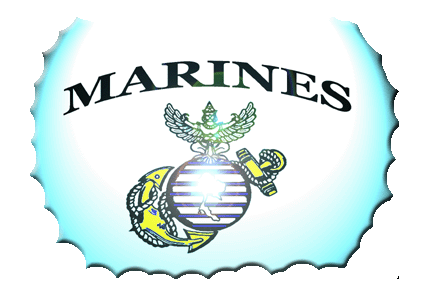1977 - Krung Ching Camp
 In early 1977, the Royal Thai Navy sent one Infantry Battalion of the Royal Thai Marine Corps to support the Supreme Command Joint Operations in suppressing the communist terrorists in the southern part of Thailand. The task force, which became known as the Marine Task Force 201 (MTF 201), operated with a Border Patrol Police platoon and another platoon from the Army Engineering Corp.
In early 1977, the Royal Thai Navy sent one Infantry Battalion of the Royal Thai Marine Corps to support the Supreme Command Joint Operations in suppressing the communist terrorists in the southern part of Thailand. The task force, which became known as the Marine Task Force 201 (MTF 201), operated with a Border Patrol Police platoon and another platoon from the Army Engineering Corp.
The mission of MTF 201 was to search, find and destroy the enemy including their posts, supplies, weapons and all other equipment in the area and the vicinity of "Krung Ching Camp" Ta Sala District, Sichon District, Prom Kiri Sub-district , as well as Lan Ska District in Nakhon Si Thammarat province. The MTF 201 personnel moved into the area of operations on 23 February 1977 and were stationed at Nai Tung Village in Ta Sala District.
Krung Ching was one of the largest command camps of the Southern communist terrorist group located in Nakhon Si Thammarat Mountain, part of the Buntad Highlands consisting of many high peaks, some as high as 2,000 feet. The terrain was rough and remote, thus making it very difficult to reach. The terrorists built many strong posts, each of which could hold up to hundreds of troops. Some caves were used as barracks. They even built factories to make their own explosive devices and clothes. The Communist Camp was surrounded by trenches and many machine gun emplacements, all of which were well fortified and hidden - almost impossible to locate even by air surveillance. In addition, the terrorists had laid many land mines along the route that they expected troops will be using as well as waited in ambush for the troop deployment. The Thai troops inevitably faced heavy losses, yet the Marines persevered.
The Marine Task Force was organised to be as self-contained as possible with Infantry as the main force with full support elements. The force was also equipped with 105 mm. artilleries. The MTF operation lasted approximately 8 weeks from 23 February 1977 onward. The area was thoroughly searched and combed through until the communist camp was located on 31 March 1977. D_ring this operation, the MTF 201 soldiers suffered severe hardships: having to stay in foxholes and surviving mostly on their own resources because of scarce food provisions due to rough terrain which made it almost impossible to get essential supplies to the troops even with parachutes or helicopter.
With the enemy having advantages of good camp installation, the Marines Infantry was practically unable to attack merely using light weapons. As a result, 105 mm. artillery support was brought in for counter preparation fire. This eventually made it possible to destroy most of the enemy's well-fortified bunkers. Moreover, Navy Aviation Task Force 201 (NATF 201) from the Naval Air Division of the Royal Thai Fleet was sent to support the troops in target acquisition for air attacks and deliver machine gun fire and rocket attacks. NA TF 201 also played a major role in escorting ta_tical ground movements, vehicle movements, and helicopter in the operational task. When facing a potentially critical situation, support from the Royal Thai Air Force was also brought in for further assistance.
Many marines lost their lives fighting against advancing enemy and engaging in several close combat situations. Since large numbers of land mines had been laid in the proximity of Krung Ching, many troops were killed and wounded on their reconnaissance duty. Helicopters were used to evacuate the casualties out of operatioal area. Despite the number of casualties in the operations, the Marines continued fighting at the risk of their lives and never gave up. By their indomitable fighting spirits and unfaltering dedication to duty, they were the first company to successfully seize Krung Ching Camp on 15 April 1977. They replaced the Communist's "Hammer and Sickle Flag" with Thailand's "Tricolor Flag" to proclaim that "The Kingdom of Thailand will not tolerate any flag other than the Thai Flag."
The success of the capture of the camp resulted in the attrition of the terrorists. Some of the members fled while many turned themselves in. To rehabilitate them, the Thai government initiated a Karunyathep (the angel of kindness) Project aimed at helping them to become good citizens of the country.
|
NEWSLETTER
|
| Join the GlobalSecurity.org mailing list |
|
|
|

